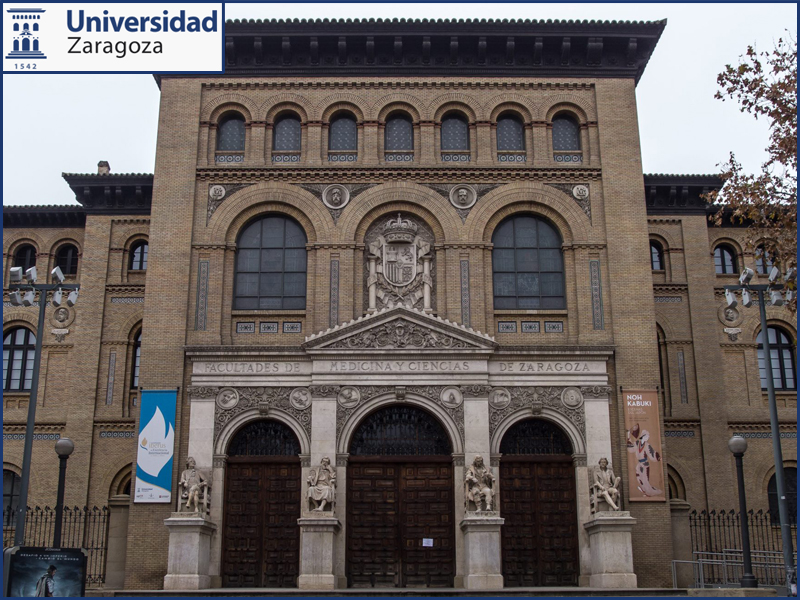-
Name: University of Zaragoza
-
Sector: Education
-
Number of students: 31,261
-
Number of teachers and professors: 4,298
-
PhDs: 3,191
-
Administration and services staff: 5,186
-
Location: 4 campus at Zaragoza, 1 at Huesca y 1 at Teruel (Spain)
The Covid-19 pandemic has generated new needs in the Education sector, derived in many cases from the impossibility of accessing academic facilities at the peak of the health crisis and from the requirement to maintain social distance. The IT team of the University of Zaragoza (UNIZAR) explored the most efficient methods, so that students could use the same resources they have when they are at the campus from their homes. They immediately found that an essential requirement was to enable remote access to the computer devices in classrooms and laboratories.
To carry out this project, UNIZAR followed the recommendation of Unified Cloud Services (UCS), hired their services and decided to trust UDS Enterprise. “The students need to use the same software and in the same way as if they were in the classrooms to carry out the teaching practices. We verified that the best approach was to provide remote access to the computers, since this way they can use licensed software and expensive hardware, impossible to transfer to the user’s location,” explains José Alberto Royo.
“The fact that the students can use exactly the same equipment if they are at the university or if they attend their lessons remotely is very useful in hybrid teaching models such as those being used today, where part of the student body is in the laboratory and the other at home,” says Royo.
Among other advantages, this system allows them “to have totally stable and controlled costs, since it does not require additional investments in software or hardware components. The aspects of UDS Enterprise that convinced us were its technical features, its reasonable price, and its ease of implementation. We had very little time until the beginning of the new course and “thanks to UCS knowledge of the product and its simplicity we were able to have the infrastructure ready on time,” comments the Area Director.
The integration of UDS Enterprise with the OpenGnsys cloning system was another decisive feature. “Some Spanish universities were already successfully using this joint solution to solve the same problem. We also use OpenGnsys and, as one of the requirements was to minimize start-up costs, we decided to follow their example and opt for this alternative,” he indicates.
The union of these two software also allows them to enjoy advanced functionalities as useful as programming automatic on/off of devices, setting schedules for remote access, or establishing specific use policies for each group of users. In this way, they can optimize the performance of their IT equipment, which are now accessible 24 hours a day, 365 days a year, regardless of whether the university is open or closed
REMOTE ACCESS FROM ANY LOCATION AND DEVICE SIZED FOR OVER 30,000 USERS
The low economic impact of UDS Enterprise has favored that, although at the moment only some UNIZAR centers use this solution, they have enabled it on a massive scale for the more than 31,000 university students. Thus, all of them will be able to use the computers located on campus from any location and through any device as soon as the need arises.
Users who have been using the university’s computers remotely for a few months have reported very positive feedback. “They stand out above all how useful and easy it is to use,” says Royo. The IT team agrees that one of the most outstanding characteristics of UDS Enterprise is “its ease of use. We are very satisfied with the implementation, services and benefits of the software”.
The deployment of the infrastructure was carried out with the collaboration of UCS specialists, UDS Enterprise Silver Partner. “Without their services, it would have been impossible to ensure the success of the project. Thanks to them, we minimized risks, which was very important given the short implementation time we had,” states Royo.
They have also had the assistance of the UDS Enterprise support team to solve advanced technical questions. “Their help in these cases is essential,” affirms the Area Director.
Once the remote access service is consolidated, the IT professionals at UNIZAR will study how to make the most of the possibilities offered by UDS Enterprise. In their project’s roadmap, the next step is “to study its integration with other desktop virtualization solutions that we have available,” concludes Royo.
REMOTE ACCESS INFRASTRUCTURE
-
Broker: UDS Enterprise
-
Physical machines’ manager: OpenGnsys
-
Connection protocol: RDP
-
Authenticator: Active Directory
-
Physical computers OS: Windows
-
Number of classrooms remotely accessible: 1,500
-
Number of users: 31,261










0 Comments